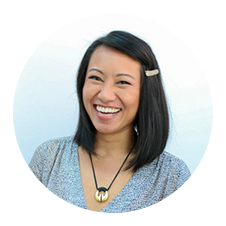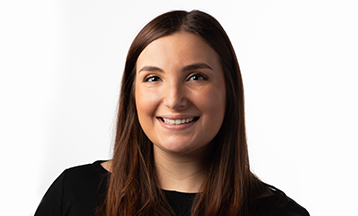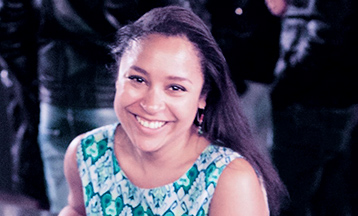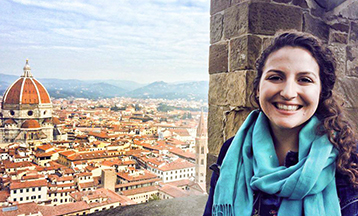-
About
Admitted Student Days
• Saturday, March 28
• Sunday, March 29
• Saturday, April 11Accepted Students: Be sure to register for one of our Admitted Student Days and explore all that Marist has to offer.
About
-
Academics
Admitted Student Days
• Saturday, March 28
• Sunday, March 29
• Saturday, April 11Accepted Students: Be sure to register for one of our Admitted Student Days and explore all that Marist has to offer.
Academics
-
Admission & Financial Aid
Admitted Student Days
• Saturday, March 28
• Sunday, March 29
• Saturday, April 11Accepted Students: Be sure to register for one of our Admitted Student Days and explore all that Marist has to offer.
Admission & Financial Aid
-
Student Life
Admitted Student Days
• Saturday, March 28
• Sunday, March 29
• Saturday, April 11Accepted Students: Be sure to register for one of our Admitted Student Days and explore all that Marist has to offer.
Student Life
- Athletics
Students talking in front of posters

Lauren Benetua
Mountain View, CAAcademic School
Communication & the ArtsCampus
ItalyLauren Benetua is a member of Marist's M.A. in Museum Studies Class of 2013. She received a BA in Art History from the University of California, Santa Cruz. She is employed by the Santa Cruz Museum of Art & History.
Why did you choose the Marist Florence branch campus?
I chose the Marist Florence branch campus because not only does it offer an international degree, but it is a beautiful city with world renowned museological institutions. Also, I delighted in the thought of getting lost in the city streets every day.
What is the learning experience like in Florence?
Learning in Florence is quite the adventure, and education is certainly not limited to the classroom. This learning experience teaches you how to become an international citizen, learning language, culture, and challenging yourself to break away from the familiar. Even inside the ‘classroom,’ we are given ample opportunities to get out into the museological scene of the city. In our lectures, we are given theory and knowledge, but with access to all state museums of Florence, we are enabled to see it all in action.
What is your favorite class? Why?
Museum Development, Management, and Leadership with Professor Bradburne. His lectures, along with the guest lecturers from each department (i.e. education, marketing/PR, communications…etc), offered the most fundamental information pertaining to organizational infrastructure of varying museological institutions. Giving a break from history and theory of museums, this course offered the practicality I craved.
What was your most challenging class in Florence? Why?
The most challenging course thus far, during the first semester, was Art and Objects. With three modules under three different professors, it was difficult to navigate contrasting expectations of projects. From a student perspective, it was a challenge to improve upon feedback received after assignments were turned in. The parallel drawn within the workforce would then be as though the managerial staff was switched on you once a month--also providing a positive learning experience in professional diversity.
What is your favorite place in Florence? Why?
I enjoy spending time across the river (Oltrarno) at various bars and cafes; it offers a nice respite from the hustle and bustle of high tourist traffic, along with having great ambiances. On this side of the river (Lungarno) I constantly find myself at Palazzo Strozzi—it’s a great central location and hang out spot for locals and visitors alike.
What is your least favorite part of Florence? Why?
What I still struggle with in Florence--and this is true of living in any major city, for that matter--is the tourist traffic. It’s not just dodging unknowing, massive crowds during frenzied rushes, but also the aggressive vendors (and almost racist and sexist epithets that never seem to end) that come with tourism. It’s all part of the territory though. Character building!
What type of museum career are you pursuing?
I am most interested in taking on a role that connects museums with the public, and community engagement. Whether through education, programming, or even exhibition design, I am excited to put my energy into it!
What type of internship do you have or plan to have? Where?
I am currently pursuing internships in either educational program development, public programming, or in various curatorial departments. It is still a work in progress at the moment, but geographically, I am looking into places here, at home, and in the Pacific.
Where have you traveled and where do you plan on traveling during your time in Italy?
I am well-traveled in Europe; but during this particular stay in Italy, I have focused on my checklist of cities within Tuscany, such as San Gimignano, Cortona, Perugia, Siena, and Cinque Terra. I plan to make it out to more countries eventually; Portugal and Greece have been at the top of my list for quite some time.
What is the most interesting difference between Florence and your home country?
The people and the way of life! It is fascinating to analyze how living in a different cultural landscape affects personal philosophies and general self-conduct. Seeing the juxtaposition play out from home to here, and also experiencing yourself in the middle of it all, is generally just really cool.
What advice would you give to a prospective student considering a Master’s in Museum Studies in Florence?
This is a very valuable learning experience on all levels--academically, professionally, as well as personally. Also, as the wheels of bureaucracy turn ever slowly, make sure to get a jump on applying for visas and other such documents early, and make sure Marist aids you in the process. Apply for everything early, and be sure you have a grasp on your own self-sufficiency. Otherwise, the biggest piece of wisdom to offer is to seriously consider the growing pains of a very young program. Be sure to weigh your expectations and values of a Master’s degree and make sure this program can meet every one of those.



